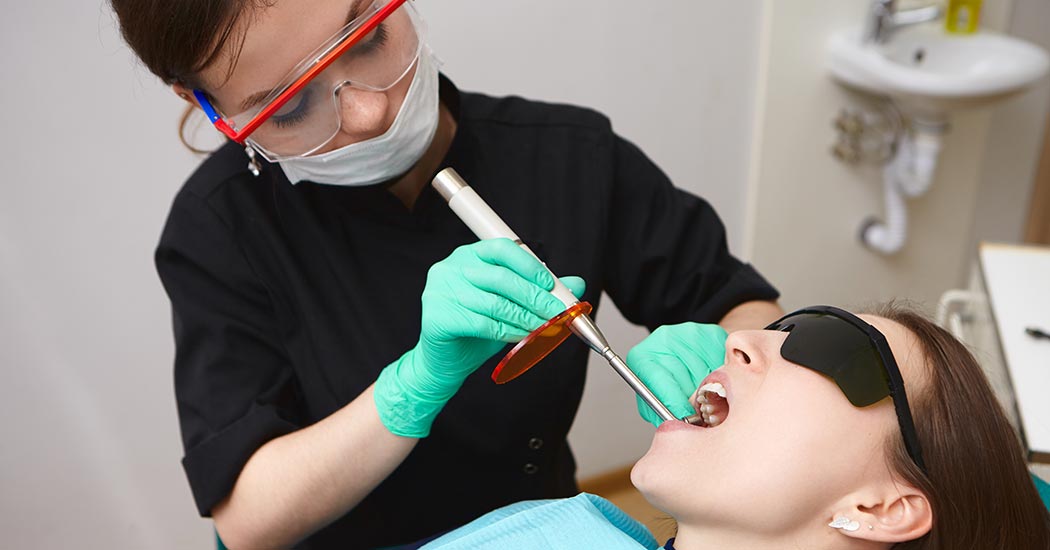What is teeth whitening?
Teeth whitening involves bleaching the teeth to brighten their shade. After treatment, the teeth may look a few shades whiter, but not usually bright white. The results vary on individuals.
Teeth whitening is also offered by unregulated, unqualified practitioners, for example in beauty and hair salons, shopping malls, salons, or via mobile services, portraying themselves as ‘teeth whitening specialists’ who have the knowledge or training to perform teeth whitening procedures safely.
The Australian Dental Association advises that only registered dental practitioners have the expertise to assess whether teeth whitening is safe for you, to recommend the most appropriate technique and materials, and to provide treatment that meets safety and quality regulations. Only registered dental practitioners can legally use the most concentrated — and thus most effective — whitening solutions. For your own safety and to ensure you receive the the best results, always perform teeth whitening with a registered dental practitioner.
How does teeth whitening work?
The bleach soaks through the tooth’s enamel top layer and into the dentine, reacting with the coloured molecules which causes discolouration.
The dentine then becomes lighter and the teeth look whiter. Bleach can also make the enamel surface more reflective, which looks whiter too.
When might someone need teeth whitening?
Teeth can be discoloured by your dietary intake. For example, if you had too much tea, coffee, red wine or cola, is a heavy smoker, or consume excessive flouride or tetracycline when teeth are forming, then you may experience discouloured teeth.
If you are considering teeth whitening, please consult with your dentist to see if your teeth are suitable.
Note that whitening treatments will not whiten artificial materials, such as existing crowns, veneers, or fillings in your mouth. If you want the best results, it is recommended that you replace the materials after your whitening procedure.
What happens during a teeth-whitening procedure?
Take home whitening kits
Your dentist will first create moulds of your top and bottom teeth. These are used to make customised trays that fit over your teeth and your mouth only.
When your kit is ready, you can put bleaching gel is put into the trays, which you wear in your mouth for 15 to 30 minutes. Be careful not to put too much gel into the trays, otherwise when you bite down the gel might overflow and damage your gums. You can repeat this process whilst strictly following the instructions provided to you.
You’ll probably notice a difference in 2 to 4 weeks.
In chair whitening
In chair whitening is done in the clinic. The dentist covers your gums and then paints bleaching agent on the teeth. A laser light is shone to activate whitening and accelerate the process. This takes about 60-90 minutes, and often only needs one visit.



